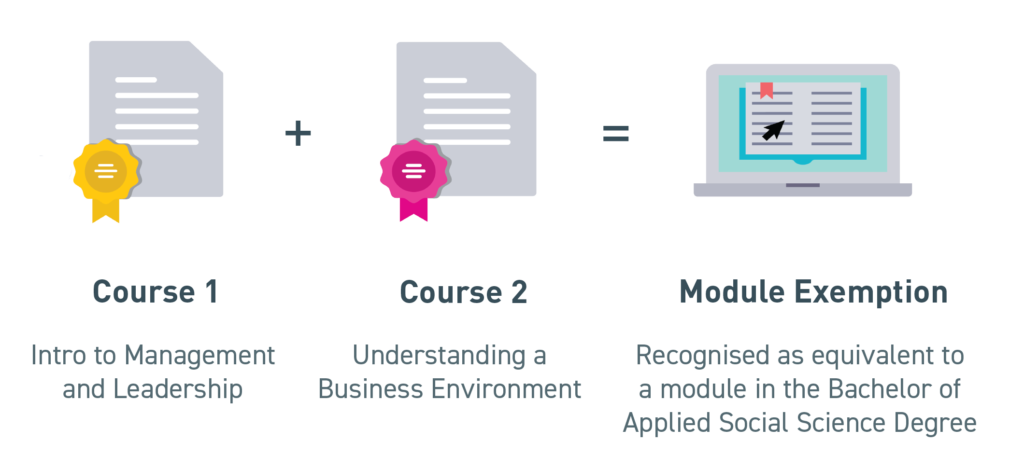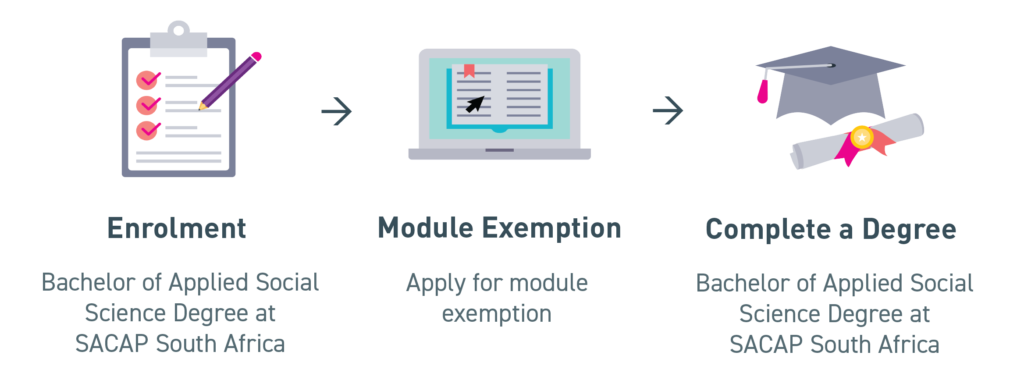Globally, there are various trends that are impacting the direction of workplace training and career development. Rapid and fundamental changes to the global economy are disrupting labour markets and with this has come a shift to lifelong learning through specialised short courses.
Lifelong learning is no longer only about satisfying your desire for personal and professional development. It has become a requirement to remain employable. The global workforce needs to stay current, agile and adaptable as industries and technology evolve. A continuously evolving world demands continuously evolving citizens.
What is a credential?
A credential is evidence of a skillset that a person has demonstrated, which in turn inspires confidence in their capabilities. So, while we can informally upskill through watching videos on YouTube, for example, it doesn’t give us anything concrete to add to our CV.
What is a micro-credential course?
There are a variety of short qualifications that focus on specialised areas, these include nano-degrees, micro-masters and micro-qualifications. Similarly, a micro-credential a specialised short course i.e. a short, verified course that is digitally certified and assessed.
Micro-credentials are outcomes based and testifies to the attainment of specific skills and knowledge due to assessment. The assessment part of a micro-credential makes it different to micro-learning courses or micro-courses which often take 10 hours or less to complete, and do not include any kind of assessment.
A micro-credential can be completed as stand-alone course, or as components of an accredited academic programme. Being a component of a formal qualification, as is the case with SACAP Global’s micro-credentials, allows the credentials to stack towards an accredited qualification.

This means that they are recognised as equivalent to specific degree modules. Learners can use these to apply for module exemption, if enrolled in the degree from which the micro-credential originated. This is another global trend in education – unbundling formal qualifications into stackable courses.

SACAP Global’s micro-credentials are academically robust and highly practical. They guide learners through equivalent course outcomes, material and assessment.
These bite size components of a degree are offered online as an affordable way for working professional to upskill in their own time. The micro-credentialss are verified and provide digital certification and a portfolio of evidence upon completion. SACAP Global issues digital certificates and sharable badges that leaners can share on social media platforms.
“Micro-credential courses may well be the way of the future for professionals.”
How is a micro-credential developed?
Step 1 : Design and development
The process of developing a SACAP Global micro-credential starts with the design phase, where a degree module is split into a minimum of two short courses by subject matter experts. During this process notional learning hours, academic content and course outcomes of both short courses are reviewed to ensure the integrity of the academic base. Learning designers then work with the subject matter experts to create engaging online learning activities that enable learners to work through the courses in their own time and complete weekly assignments and readings.
Step 2: Internationally relevant
With Malaysia at the forefront of the micro-credential space, the SACAP Global’s micro-credentials have also been aligned to the Malaysian Qualifications Agency (MQA)’s Guidelines to Good Practices: Micro-credentials. These guidelines have assisted us with the conceptualisation and implementation of micro-credential design, development and delivery at an international standard.
Step 3: Quality assurance and academic review
Our micro-credentials are refined through five layers of internal quality assurance, as well as external quality assurance by OpenLearning.
Step 4: Online learning environment
SACAP Global partnered on OpenLearning, an online learning platform with roots in Malaysia and Australia. This social learning environment hosts a range of courses for an international audience. OpenLearning has recently been listed as one of the top start-up ed tech companies in Australia and their learning philosophy focuses on creating social and engaging experiences.
Step 5: Course classification
Our micro-credentials have been reviewed by OpenLearning and are classified as OpenCreds, bringing further credibility to our specialised short courses. The OpenLearning revision ensures quality academic content within the Malaysian and Australian credentialing framework.
What makes SACAP Global’s micro-credentials credible?
In summary, our micro-credentials are designed to be equivalent to components of our accredited qualifications. Our specialised short courses are developed by experts and undergo quality assurance reviews before being launched to market.
Our micro-credentials are stackable, which means that they can be recognised as equivalent to modules within degree programmes at SACAP. Therefore, learners can complete a specific combination of micro-credentials, and if they meet the minimum entrance criteria, enrol for the Bachelor of Applied Social Science Degree and apply for exemption from the relevant module.
Upon completion, learners are issued a digital certificate of competence and sharable badge, as evidence of practical skills attained and knowledge acquired.
Browse our list of courses to find out more information to register.
